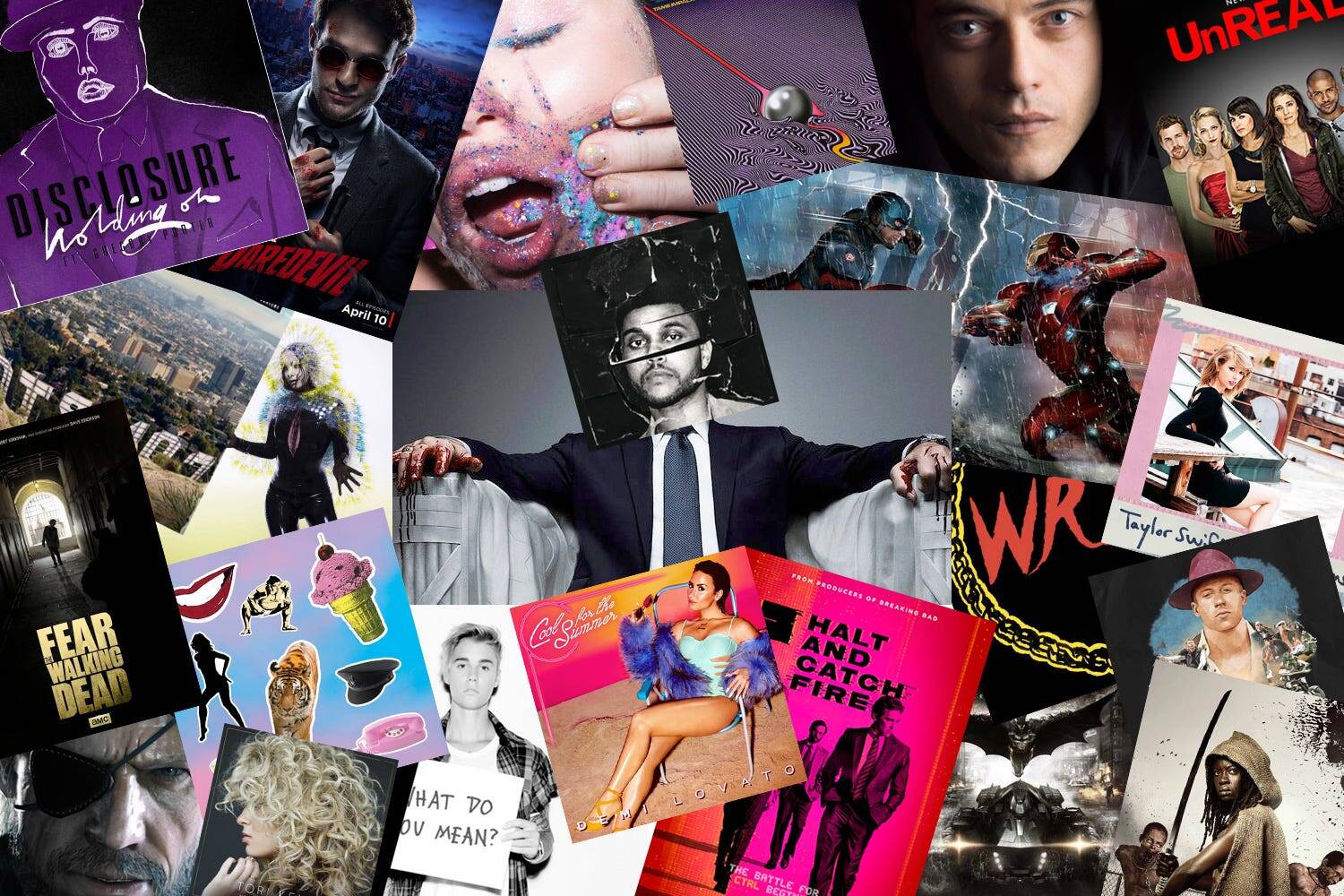
Pop culture references are everywhere, from movies and TV shows to music and memes. They shape our conversations, influence our fashion choices, and even impact our language. But what exactly makes something a pop culture reference? A pop culture reference is a mention or allusion to a well-known piece of media, event, or phenomenon that is widely recognized by the general public. These references can be humorous, nostalgic, or even critical, and they often serve as a shorthand for shared experiences or common knowledge. Whether you're quoting a famous movie line or sharing a viral meme, you're participating in the ever-evolving landscape of pop culture. Ready to dive into some fun facts? Let's get started!
Key Takeaways:
- Movies, music, TV shows, books, video games, and fashion all contribute to pop culture references that influence our language, behavior, and style.
- Iconic phrases, characters, and fashion statements from pop culture have become part of everyday life, shaping the way we communicate, express ourselves, and even dress.
Pop Culture in Movies
Movies have always been a rich source of pop culture references. They shape our language, fashion, and even our behavior.
- "May the Force be with you" from Star Wars has become a universal phrase for good luck.
- The DeLorean from Back to the Future made the car an icon of time travel.
- "Here's looking at you, kid" from Casablanca is one of the most quoted lines in film history.
- The Matrix's red pill/blue pill choice has become a metaphor for choosing between harsh truth and blissful ignorance.
- "I'll be back" from The Terminator is Arnold Schwarzenegger's most famous line, often used to signify a return.
Pop Culture in Music
Music not only entertains but also influences fashion, language, and social movements.
- The Beatles' "Yeah, yeah, yeah" from She Loves You became a catchphrase in the 1960s.
- Elvis Presley's hip gyrations were considered scandalous but set the stage for modern dance moves.
- "We Will Rock You" by Queen is an anthem at sports events worldwide.
- Michael Jackson's moonwalk became a dance phenomenon after his performance of Billie Jean.
- "Bohemian Rhapsody" by Queen has been referenced in countless movies, TV shows, and even commercials.
Pop Culture in TV Shows
TV shows are a treasure trove of memorable moments and catchphrases that become part of everyday conversation.
- "How you doin'?" from Friends became Joey Tribbiani's signature pick-up line.
- The "D'oh!" from The Simpsons is now a recognized exclamation of frustration.
- "Winter is coming" from Game of Thrones became a metaphor for impending trouble.
- "Bazinga!" from The Big Bang Theory is Sheldon Cooper's go-to word for a prank.
- "Live long and prosper" from Star Trek is a Vulcan salute that has transcended the show.
Pop Culture in Literature
Books have given us some of the most enduring phrases and characters that continue to influence pop culture.
- Sherlock Holmes' "Elementary, my dear Watson" is often quoted, even though it's not in the original books.
- "It was the best of times, it was the worst of times" from A Tale of Two Cities is a classic opening line.
- Harry Potter's "Expelliarmus" spell is known even to those who haven't read the books.
- "Big Brother is watching you" from 1984 is used to describe surveillance and loss of privacy.
- "To be, or not to be" from Hamlet is one of Shakespeare's most famous lines.
Pop Culture in Video Games
Video games have their own set of iconic moments and phrases that have seeped into mainstream culture.
- "It's-a me, Mario!" from the Super Mario series is instantly recognizable.
- "Finish him!" from Mortal Kombat is a call to action in many competitive scenarios.
- "The cake is a lie" from Portal has become a metaphor for false promises.
- "Do a barrel roll!" from Star Fox is often used to suggest a quick maneuver.
- "War. War never changes." from Fallout sets the tone for the game's post-apocalyptic world.
Pop Culture in Fashion
Fashion trends often start in pop culture and then make their way into everyday life.
- Madonna's cone bra designed by Jean Paul Gaultier became an iconic fashion statement.
- Michael Jackson's single white glove became a symbol of his unique style.
- The "Rachel" haircut from Friends was one of the most requested hairstyles of the 1990s.
Pop Culture's Lasting Impact
Pop culture shapes our world in countless ways. From iconic movie quotes to viral internet memes, these references become part of our daily conversations. They connect people, spark creativity, and even influence fashion and language. Understanding these references can make you feel more connected to others and in tune with current trends.
Pop culture isn't just entertainment; it's a reflection of society. It captures our hopes, fears, and dreams. By paying attention to these references, you gain insight into what's important to people at any given time. Whether it's a classic TV show or the latest TikTok trend, pop culture is a powerful force that continues to evolve.
So next time you hear someone quote a movie or share a meme, remember—you're participating in a shared cultural experience that brings us all a little closer together.
Frequently Asked Questions
Was this page helpful?
Our commitment to delivering trustworthy and engaging content is at the heart of what we do. Each fact on our site is contributed by real users like you, bringing a wealth of diverse insights and information. To ensure the highest standards of accuracy and reliability, our dedicated editors meticulously review each submission. This process guarantees that the facts we share are not only fascinating but also credible. Trust in our commitment to quality and authenticity as you explore and learn with us.


